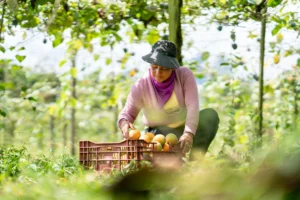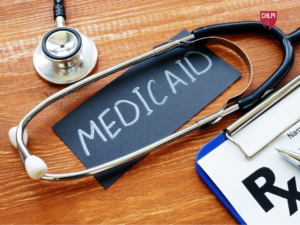This post was written by Regina Paparo with support from Ata Nalbantoglu and Kerensa Gimre, FLPC clinical students.
Highlights
- Providing comprehensive liability protection to food donors and food recovery organizations has the potential to support greater food donation
- Raising awareness among food donors and food recovery organizations of liability protection laws is essential
- Relevant implementing regulations should be passed to facilitate increased food donation
The Harvard Law School Food Law and Policy Clinic (FLPC), in partnership with The Global FoodBanking Network (GFN) and Food Systems for the Future, virtually convened policymakers on February 25 to discuss policy opportunities to address liability protections for food donations. The meeting was part of a series of webinars organized under the Global Food Donation Policy Atlas project, a joint partnership between FLPC and GFN, with support from the Walmart Foundation. Featuring select government officials and food donation experts from around the world, the webinar explored concerns, best practices, and policy considerations to encourage the adoption of comprehensive liability protections for food donations.
A significant barrier to food donation is the fear among food donors that they will be found liable if someone becomes sick after consuming donated food. Many countries do not provide any liability protection, or have unclear or fragmented policies with varying levels of protection. Even where liability protections exist, many food donors and food recovery organizations are uncertain as to whether they qualify for this protection and its scope of application. The Global Food Donation Policy Atlas project has found that concerns among food donors about liability protection impact the donation of safe, surplus food.
Moderated by Ertharin Cousin, CEO and Founder of Food Systems for the Future, the webinar explored key issues regarding the offering of liability protection, such as who should receive protection, applicable food safety laws, whether food must be given away for free in order to receive liability protection, the fault level at which a donor or food recovery organization should lose protection, and to whom donors must donate to receive liability protection.
Policymakers discussed various protections in respective liability protection laws and policies. Milena Battaglia, the Head of the Office of Supply Chain Policies and Circular Economy at the Ministry of Agricultural, Food and Forestry Policies in Italy, discussed Law No. 166/2016 that provides certain liability protections for businesses that donate surplus food. Milena also noted that the European Union adopted EU Guidelines on Food Donation which provides guidance to EU member countries on various food donation issues, including on liability protection. Natalia Basso, who leads the National Plan to Reduce Food Loss and Waste, in the Ministry of Agriculture, Livestock and Fisheries in Argentina, highlighted a 2018 liability protection amendment to Argentina’s Food Donation Law (Régimen Especial para la Donación de Alimentos) that provides broad liability protection to qualifying donors and food recovery organizations.
Further, policymakers underscored the need for the adoption of relevant regulatory implementation tools. Enacting a liability protection law is only the first step – implementation is also of utmost importance to ease food donation. Senator Santiago Valencia González, a member of the Senate of the Republic of Colombia, explained that Colombia passed a food donation law, Law 1990 of 2019 that provides liability protections for food donations – but a delay in publishing regulations has impeded the implementation of the law. Similarly, Gidi Kroch, the Chief Executive Officer of Leket Israel, the national food bank in Israel that was instrumental in awareness raising, alliance building, and research during the enactment of Israel’s Food Donation Act in 2018, noted that the Act has not been implemented due to a delay in passing a bylaw or regulations; however discussions regarding implementing legislation are ongoing with the Ministry of Health of Israel.
Finally, awareness among food donors and food recovery organizations about the protections offered by liability protection laws is necessary to encourage and facilitate increased food donations. Dr. Jean C. Buzby, the Food Loss and Waste Liaison at the United States Department of Agriculture, who discussed the Bill Emerson Good Samaritan Food Donation Act that provides civil and criminal liability protection for food donations – noted that a lack of awareness among food donors and food recovery organizations about the protections offered by the Act continues to curtail food donation, despite the Act’s very strong and comprehensive protections.
These remarks demonstrated that meaningful liability protections have the potential to support greater food donation – further emphasizing the importance of comprehensive liability protection for food donors and food recovery organizations in promoting safe food donation. Strong liability exists when a law provides for comprehensive civil and/or criminal liability protections for both food donors and food recovery organizations at the federal level. A detailed companion issue brief on best practices regarding liability protection for food donations is forthcoming. FLPC and GFN welcome the continuation of a critical and open conversation in the upcoming session, which will focus on The Impact of Date Labeling on Food Waste, Food Recovery, and Donation. FLPC invites government officials and policymakers from international and multilateral organizations to reach out for further information at flpc@law.harvard.edu.


Food Law & Policy, Commentary
Policy to Reduce Methane Emissions and Feed More People
April 3, 2025